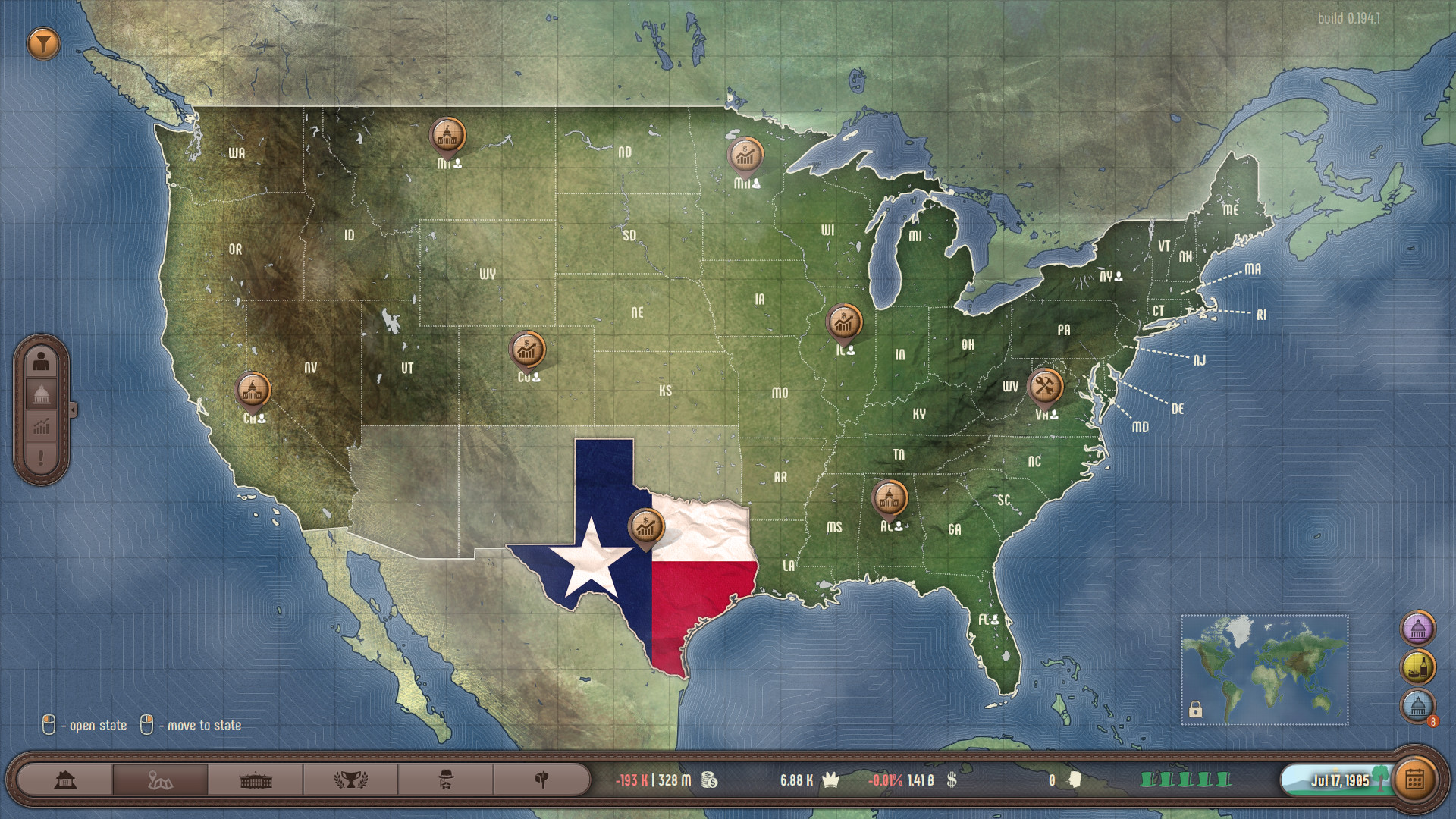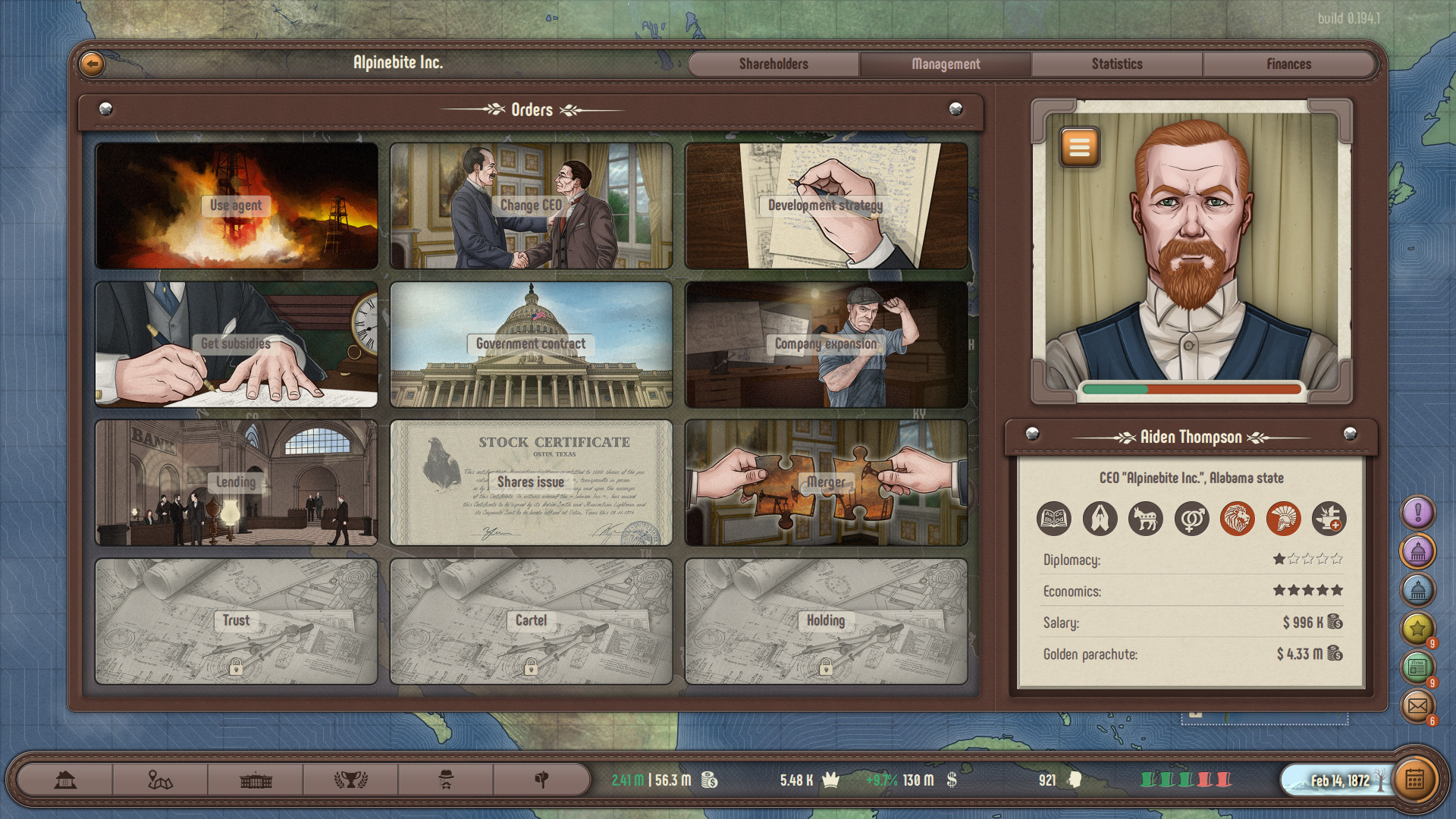
The state, which through the party formally sold favors to the large corporations, became one of their departments." Money, according to contemporary progressive and journalist Walter Weyl, was "the mortar of this edifice", with ideological differences among politicians fading and the political realm becoming " a mere branch in a still larger, integrated business. The Sherman Antitrust Act had been enacted in 1890, when large industries reaching monopolistic or near-monopolistic levels of market concentration and financial capital increasingly integrating corporations and a handful of very wealthy heads of large corporations began to exert increasing influence over industry, public opinion and politics after the Civil War. we had come to the stage where for our people what was needed was a real democracy and of all forms of tyranny the least attractive and the most vulgar is the tyranny of mere wealth, the tyranny of a plutocracy. According to historian David Burton, "When it came to domestic political concerns, TR's bête noire was the plutocracy." In his autobiographical account of taking on monopolistic corporations as president, Roosevelt recounted President Theodore Roosevelt became known as the "trust-buster" for his aggressive use of United States antitrust law, through which he managed to break up such major combinations as the largest railroad and Standard Oil, the largest oil company. Some modern historians, politicians, and economists argue that the United States was effectively plutocratic for at least part of the Gilded Age and Progressive Era periods between the end of the Civil War until the beginning of the Great Depression. See also: American upper class and Wealth inequality in the United States
#Plutocracy game code#
For the Nazis, the term was often a code word for "the Jews". Plutocracy replaced democracy and capitalism as the principal fascist term for the United States and Great Britain during the Second World War. In the political jargon and propaganda of Fascist Italy, Nazi Germany, and the Communist International, Western democratic states were referred to as plutocracies, with the implication being that a small number of extremely wealthy individuals were controlling the countries and holding them to ransom. Around 450,000 non-residents constitute the city's day-time population, far outnumbering the City's 7,000 residents. The principal justification for this arrangement is that most of the services provided by the City of London Corporation are used by the businesses in the City. More than two-thirds of voters are not residents, but rather representatives of businesses and other bodies that occupy premises in the City, with votes distributed according to their numbers of employees. The City (also called the Square Mile of ancient London, corresponding to the modern financial district, an area of about 2.5 km 2) has a unique electoral system for its local administration, separate from the rest of London. One modern, formal example of a plutocracy, according to some critics, is the City of London. A former chairman of the Federal Reserve, Paul Volcker, also believed the US to be developing into a plutocracy. According to Noam Chomsky and Jimmy Carter, the modern United States resembles a plutocracy though with democratic forms. Historic examples of plutocracies include the Roman Empire, some city-states in Ancient Greece, the civilization of Carthage, the Italian merchant city states of Venice, Florence, Genoa, the Dutch Republic and the pre-World War II Empire of Japan (the zaibatsu). Throughout history, political thinkers and philosophers have condemned plutocrats for ignoring their social responsibilities, using their power to serve their own purposes and thereby increasing poverty and nurturing class conflict and corrupting societies with greed and hedonism.

The term plutocracy is generally used as a pejorative to describe or warn against an undesirable condition. Unlike most political systems, plutocracy is not rooted in any established political philosophy. The first known use of the term in English dates from 1631.


We will be able to collaborate in all kinds of political intrigues, which will take us from the beginning of our adventure to tens of years of history with hundreds of important events, and we will even be able to directly influence the outcome of the World Wars.A plutocracy (from Ancient Greek πλοῦτος ( ploûtos) 'wealth', and κράτος ( krátos) 'power') or plutarchy is a society that is ruled or controlled by people of great wealth or income.


 0 kommentar(er)
0 kommentar(er)
